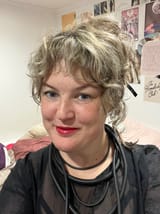How do we raise kids who care?
Tips for growing compassionate, community-minded tamariki
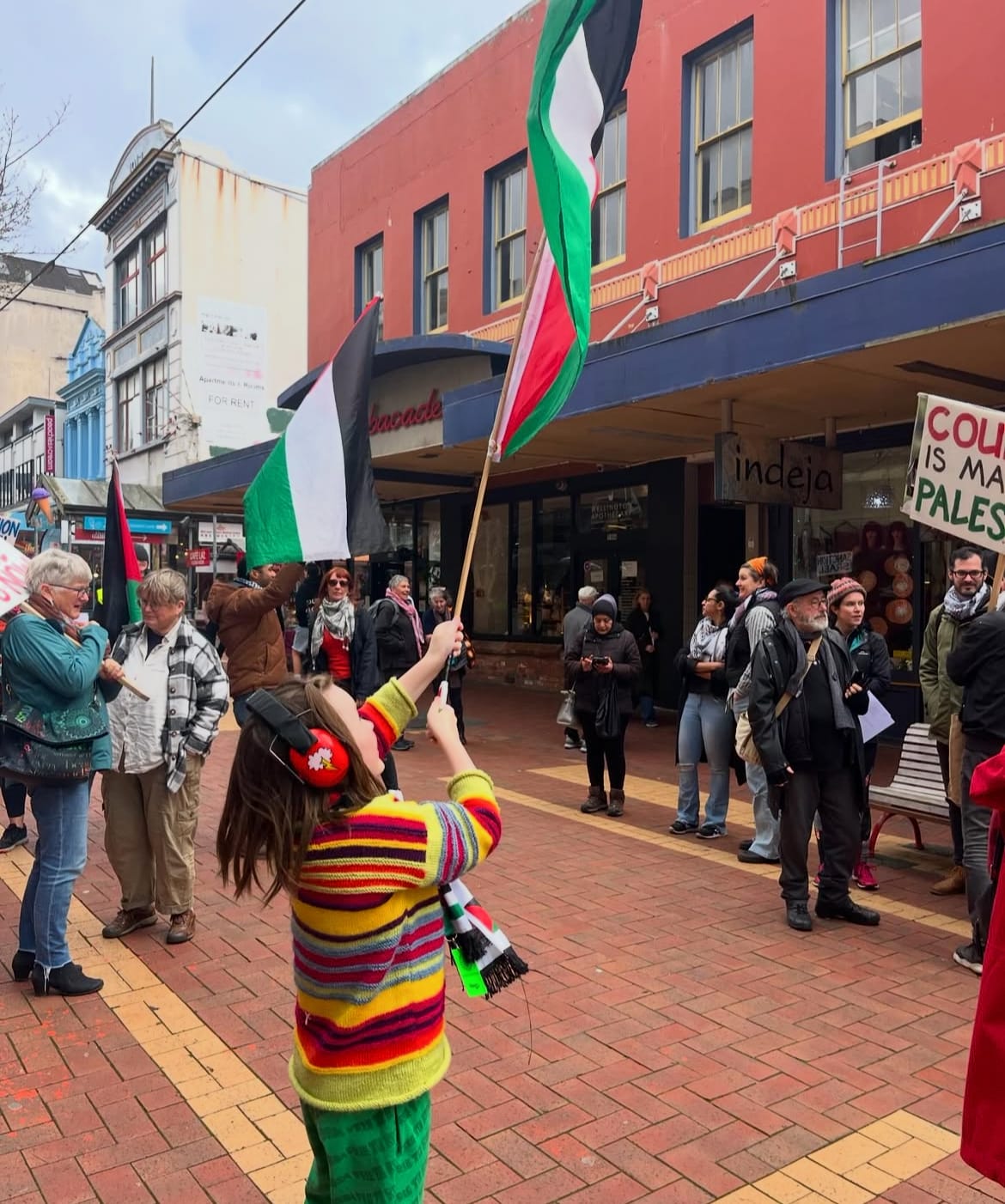
Last week, my son and I sat side-by-side working. I sent donations out from our Aotearoa to Gaza mutual aid fund, and he worked on the website for his first fundraiser.
He has been busy for weeks organising his fundraiser - Kids Rock 4 Palestine - and I've noticed a lightness in him since he started. When the world feels scary and you feel hopeless, I genuinely believe the only thing that helps with these fears and overwhelm is action.
After a year of watching a genocide being live-streamed, I decided just to start collecting funds to send to families. We had been donating as a family, making strong connections with other families in Gaza, but we were only one family without a lot of extra to share. I knew other families would be in the same boat as us, desperate to help, so why not work together? Six months on, the fund supports 45 families. And each morning, amidst the videos of horror we all see on our screens, I also get videos of children in Gaza saying ‘thank you, New Zealand!’.
Donations of $1 and $2 are coming in, people saying, ‘this is my last $5 before pay day’, it reminds me that so many people are good. It isn’t hopeless.
I want my children to understand their place in the world. I want them to know how lucky they are. But I don’t want them to feel guilt or hopelessness. I want them to understand service, but I want them to see it as a privilege, not a burden.

So, how do you do that? How do you teach your kids empathy? How do you teach them, in a world that encourages consumerism and competition, to go against that? To view community as more important than consumption? How do we raise collaborators not capitalists?
I am not an expert. But here’s what we do in our whare, and I’d love to hear what you do. A lot of it is about Palestine, but the concepts work (I think) for every social issue.
Obviously, this is an endless conversation! It won’t cover everything, and every whānau is different. Just take what you need! And please share what you do in your whānau.
Get educated together
I have spoken to so many parents who have said that learning about the true history of Israel’s occupation of Palestine has made them question everything. They’re seeing the propaganda machine in full swing. They’ve been taught their whole lives that Palestinians are terrorists, and now they’re suddenly realising that it’s Zionists who are the terrorists. They didn’t know about Israel’s attacks on Lebanon, Yemen, every neighbour they’ve ever had…
It’s scary to know there was an occupation happening that you didn’t know about. To learn it’s not a conflict nor a war but a genocide. That it’s been going on for decades, that it didn’t ‘start’ on 7 October.
I came to join the Palestinian liberation movement by accident in 2008, simply from working as a journalist and seeing unedited photos of the massacres of children in Gaza by Israeli occupation forces. We are all learning all the time.
Learning is crucial, as is facing the facts. Israel kills a child in Gaza every 45 minutes. That is an average of 30 children killed every day over the past 535 days - once you know that, you can’t unknow it.
Médecins Sans Frontières / Doctors Without Borders (MSF) conducted a study surveying only their staff and families. Forty-eight per cent of the people who died from blast injuries among their colleagues' households were children, and 40 per cent were under 10 years old.
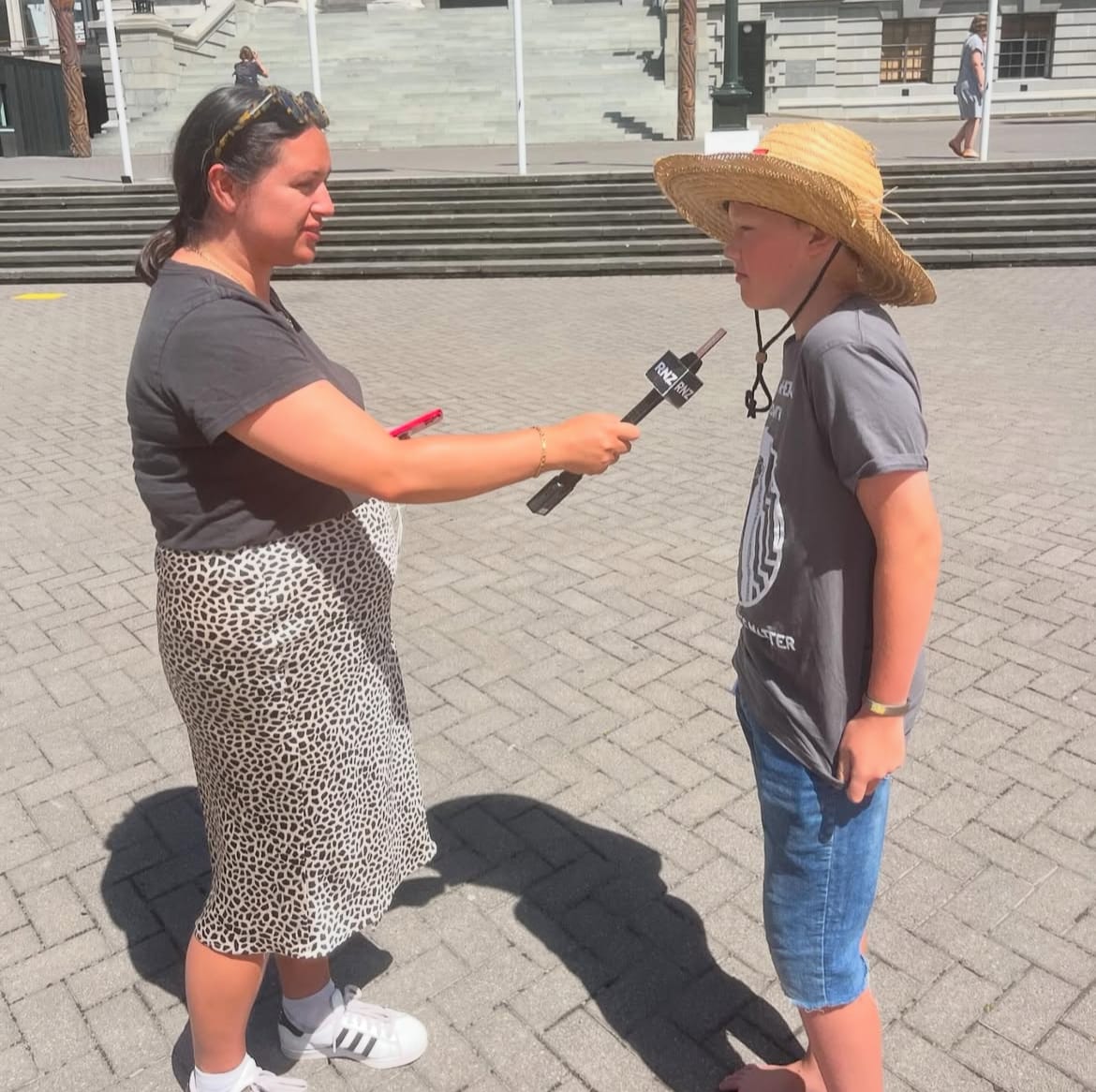
When you are learning, think about how you can learn with your children. Here’s what we do:
- We looked at maps of Palestine before Israel’s occupation and invasion.
- We talked about what colonisation is and how it impacts indigenous people around the world.
- We watched videos showing Palestine before Israel’s occupation.
My kids are 10 and 12, so this is age-appropriate for them. I do not show videos of children being injured or starved, as this would be too overwhelming for them.
There are videos for younger children, like - I Am From Palestine - which is a cartoon. You know your children best. Some tweens and teens are very sensitive and struggle with overwhelm, so that cartoons might be better. If you have a neurodivergent child, they might have a better understanding of geopolitics than most adults, so that you can use resources designed for older children.
Encourage your child to question authority and encourage media literacy
Easier said than done, right?! But actually, just asking questions and having open and honest discussions as a family was and is our first step.
Example: As I said above, it needs to be appropriate for your kids. But my ten-year-old is obsessed with country borders, so he knows the history of Palestine. My 12-year-old is inspired by seeing what life is like for other children his age around the world. We shared this news piece on activist Ahed Tamimi, 16.
After the video, we had a hui and asked questions.
Why do you think Ahed was so angry with Israeli soldiers?
- Why do you think the media didn’t talk about the injuries to her younger sibling?
- What do you think about a court having a 100% conviction rate for only one race of people?
- What do you think about a child being jailed?
We look at (safe) news reports. We encourage the kids to come up with questions themselves about what they read.
We talk about the meaning of words and why some words are used while others aren’t. Why is the word ‘conflict’ used so much? Why do they say ‘Hamas-run’ for health statistics instead of using the death toll from The Lancet or the verified name list, where estimates of death are much higher? Why do you think they say Israel vs Hamas instead of Israel vs Palestine?
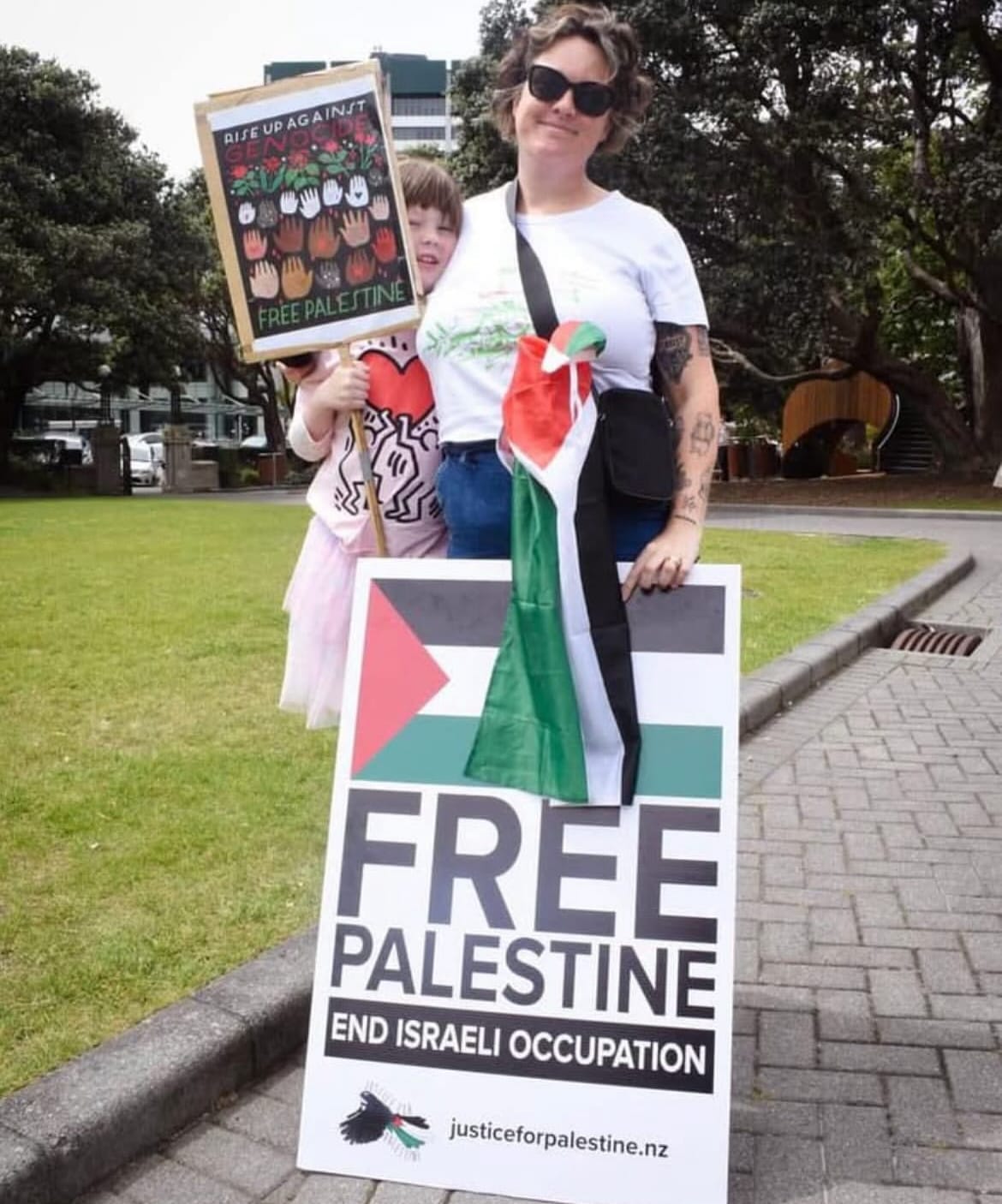
Support your child’s innate curiosity about the world
We learn about Palestinian culture by watching videos sent to us by children in Gaza. We watch and listen to Palestinian music. We share kapa haka videos of Palestinian children, and they send us videos of them doing Dabkeh. There are many videos of Dabkeh online.
We have keffieh, and we talk about how the keffieh shares the story of whakapapa just like ta moko. What do the different designs mean on a keffieh? What about colours?
We have learned basic Arabic.
- Shukran - Thank you
- As-salamu alaykum - Peace be upon you
- Marhaba - Hello
- Yalla! - Tautoko!
This helps us and our children to understand how connected we all are.
Support your child’s innate sense of justice.
Kids value fairness. Think of pass the parcel. If a child just grabbed the parcel and ran off with it, most kids would have a full-on breakdown.
We talk about teaching kids to share and to stand up to bullies, and talking about activism and social justice is just an extension of that.
Children naturally care about each other and know right from wrong, but society pushes that out of them so they can become little cogs in the corporate machine.
Why do we have that rule? I remember the first time my child said ‘my body, my choice’ to me in response to my desperate attempts to get his hair cut. I had to think about why I was pushing the haircut. We agreed that he could have long hair ONLY if he brushed it every single day and shampooed it every few days. The basis for my rule wasn’t fair (I want you to have short hair because it’s easier), his wasn’t either (I should be able to have dreads and also complain forever when I have knots).
Roleplay - What would you say if someone said something racist to a classmate? What would you say if someone asked you about Ti Tiriti and what it means to you?
Don’t avoid the tough subjects - Our tough subject in the house is religion because neither my husband nor I are a fan of organised religion. But we want our children to grow up respecting faith, but also not being wholly accepting of all beliefs, especially if those beliefs are based on the subjugation of others.
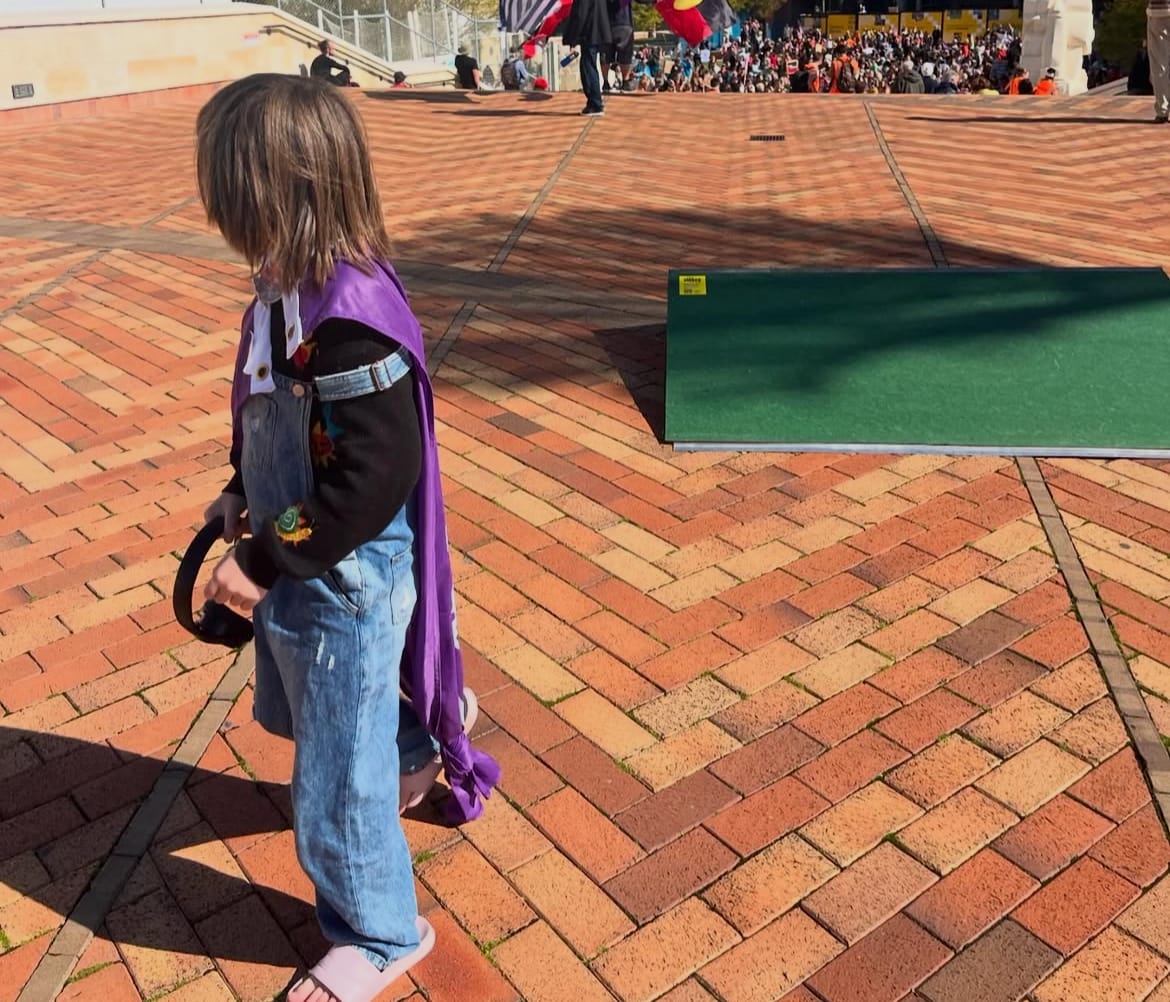
We talk about the similarities of belief systems.
For example, the Talmud (Sanhedrin 37a) says, “Whoever saves a single life is considered by scripture to have saved the whole world”. In the Quran there is Surah Al-Ma'idah (5:32), which states, "If anyone saved a life, it would be as if he saved the life of the whole of humanity.” In the bible there is Matthew 25:40 which says “Truly I tell you, whatever you did for one of the least of these brothers and sisters of mine, you did for me.”.
We try to keep how much we dislike religion out of it, and we don’t encourage the idea that different religious beliefs justify genocide. Nobody is entitled to someone else’s land or life because they believe they were promised it in a book.
Show up for your community with your kids.
I drag my kids to community fundraisers and make them sit at the door taking tickets. I take them to protests often, and they moan and whine about it, or they get in there and love it.
They collect for Daffodil Day and the children’s hospital, and they attend vigils, hīkoi, and marches. They’re mostly enthusiastic about this. When they’re not, I remind them that showing up for our community is central to who we are as a whānau - so tough titties.
When they’re feeling upset, sometimes they’ll say they want to protest. They know that protesting reminds you that you’re not alone in feeling the way you do. If there’s no protest on, I tell my kids I’ll drive them to Parliament after school, and they can stand with a sign. They’ve got power; they need to know that.
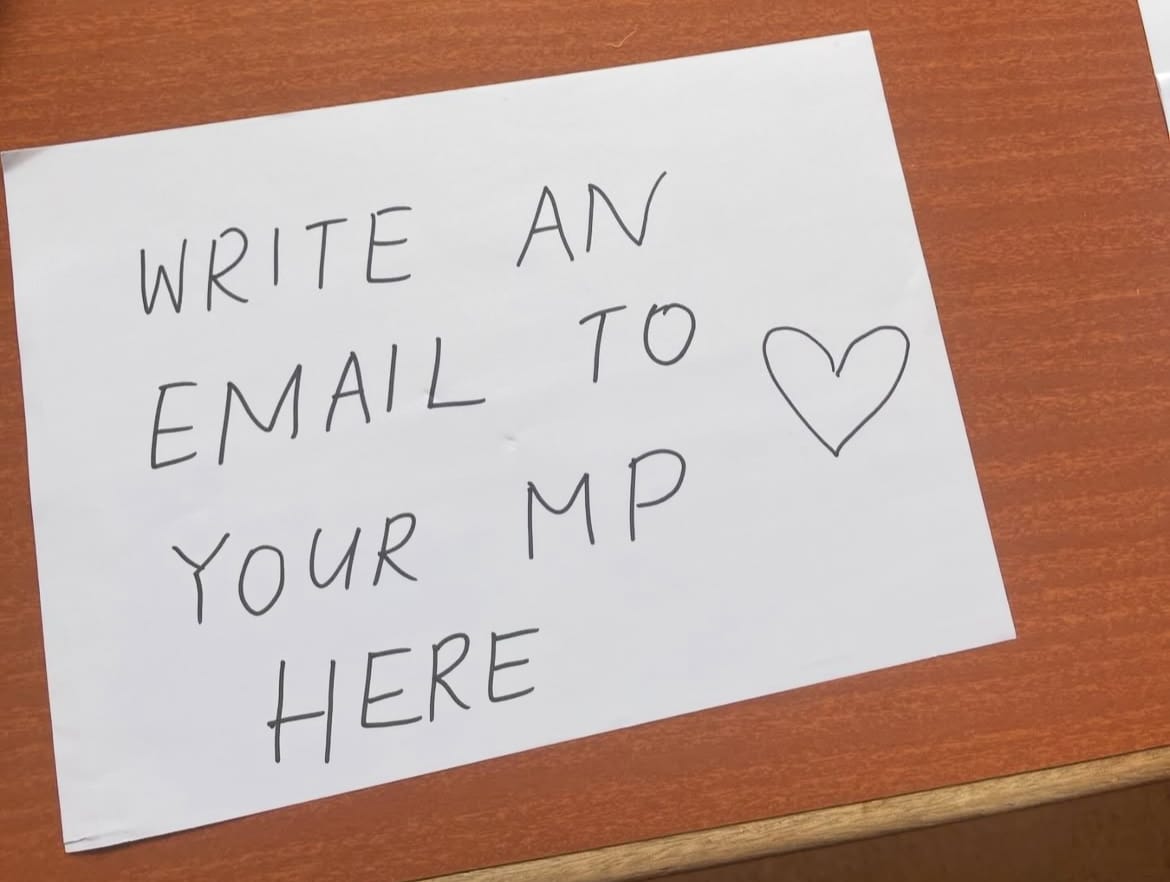
There are things they can do!
- They can write to politicians.
- They can donate clothing and toys to charity shops.
- They can give some of their pocket money to charity.
- They can volunteer - picking up rubbish at the beach, planting seeds that bees like, collecting cans for the food bank, going to the climate strike, sharing petitions, handing out flyers…
Lead by example
But the biggest tip I have is probably that we need to lead by example as parents. I know we are all time poor, but I also think parents (at least those who read this newsletter) do a lot more for their communities than they think they do.
Often a mum will tell me she ‘doesn’t do much’ but she’s on the school board, she volunteers for the school fair, she mentors a young woman at mahi, she is at Playcentre once a week.
This often isn’t visible to children. So include them. “I am going to my community mahi. I spend time at your school to make sure everyone is getting the support they need. We run a pataka kai at school, so everyone who is hungry has food. We are planning a school fair so we can pay for everything at school so that everyone has what they need”.
Sit down as a family at the end of each month and share how you helped others. It can be small - we helped our neighbour move - or big - we organised a fundraiser.
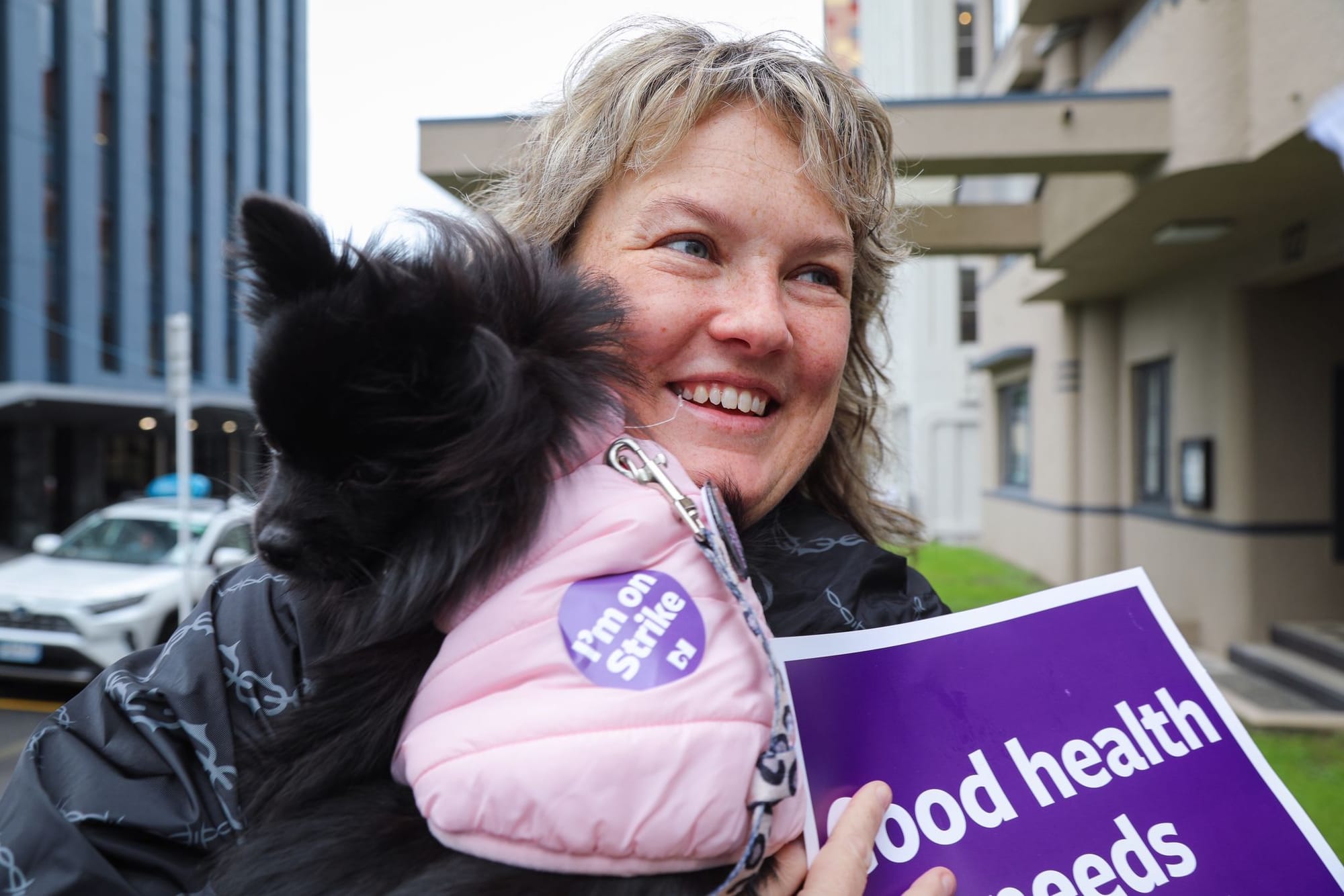
Other random tips
- When talking about genocide, remind your children they are safe. Mamas Matter Here has a great approach called ROOTED (I know lol). Reassure safely. Offer honesty. Open space for expression. Trust their pace. Engage cultural practices. Demonstrate care. Here’s a script you can use.
- This is a good analogy on how inaction is still action. Words for the adults in your life too!
- Use affirmations. Tailor them for your family. One affirmation one of our sons particularly likes is ‘I come from people who are peace makers’ (he’s Moriori). We use ‘Little can make a big difference’ a lot. And I am learning to be brave and stand up for others. Here is a great list of affirmations.
- Encourage rest. I don’t want my kids to be like me and struggle to rest. I want them to know rest is resistance, but in our home ‘do the mahi get the treats’ works better. For us, that looks like not over-scheduling and not having heaps of after-school and extracurricular activities. We don’t like the idea of rushing around all the time. Every family has a different way of making this work!
- Challenge racism and sexism around them. Someone says something racist around them - call it out. We talk about being ‘upstanders’ instead of ‘bystanders’ in our house, and as hard as it can be, we need to model that first. If we are too afraid to stand up against racism or sexism or transphobia or homophobia, how can we expect our kids to?
Thank you for sticking with me this far. I really want to know what you do in your whare. How do you talk to your kids about the tough stuff? What is important to your whānau? How do you show that?
I can only do this mahi thanks to you! Please sign up to become a free or paid subscriber. I am so grateful for you!
If you'd like to purchase an Emily Writes Weekly membership for the deserving person or loved one in your life, you can do it! Hit the button below to gift someone a year's worth of EWW.

